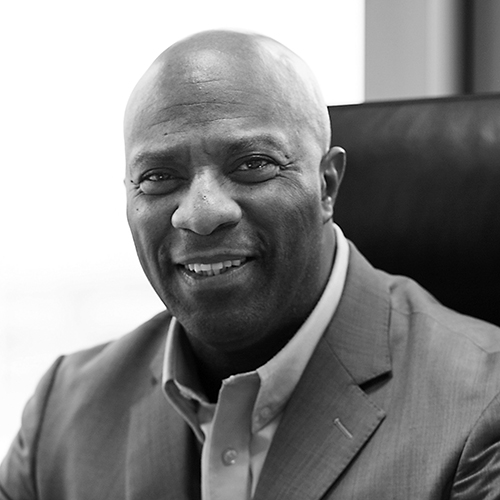Margaret Baumgartner had no intention of becoming chief patent and intellectual property (IP) counsel at a software company. In fact, she hadn’t considered being an attorney at all. But over the course of her career, Baumgartner has learned to embrace going with the flow, and she’s thrived in uncertainty along the way.

Perhaps that tenacity came from growing up in a working-class family in a small Indiana town. Her parents, who had not attended college, emphasized the importance of education. So much so, that by the time Baumgartner entered high school, she decided to become a surgeon.
Her passion for medicine continued into college, and she entered Indiana University as a biology major on a premed track. But in her junior year, everything changed. While volunteering in the emergency room at the local hospital, she observed a patient with a serious head wound. As she watched the doctor apply stitches to the wound, Baumgartner started to feel ill. “I fell over in a dead faint, and I learned that I cannot handle stitches,” she says. “Clearly, that is something very important toward being a surgeon, or even a general practitioner for that matter. Overnight, my entire world was completely shattered.”
With surgery no longer an option, she changed her major to biochemistry, and after graduating, she took a position in R&D at the biotech company Roche Diagnostics. The role was interesting, but she wanted to pursue more opportunities for advancement. So, when her supervisor suggested she meet the patent attorneys, she took him up on the offer.
Inspired by the patent attorneys at Roche, Baumgartner decided to go to law school at night while continuing to work at Roche full-time. That was no easy task, and she finished her first semester near the bottom of her class. “I realized that I needed to make a choice. Either I devoted my life to my job, or I devoted it toward becoming a lawyer,” Baumgartner recalls.
She left Roche Diagnostics and took a legal clerking position at Wilson Kehoe Winingham, a boutique personal injury firm in Indianapolis. The firm laid the foundation for her career by exposing her to the basics of legal practice. Eager to gain IP experience, she soon took an IP internship at the software start-up ChaCha Search. After she passed the patent and state bar exams, she was brought on as a full-time employee.
ChaCha’s small team and tight budget gave Baumgartner a wealth of opportunity. “At a start-up, you have limited funds. You cannot afford to send as much work to external counsel, so you really have to dig in and be resourceful,” she explains. “I learned how to find information beyond what law school taught me and picked up skills that a typical lawyer may rely on others for. I was my own legal team—tracking my docket, filling out and filing paperwork, running to the post office, you name it. I have a lot of respect for support staff and the assistance they provide.”
Those skills proved essential when, a year later, she was laid off. Once again, she found herself without a path. After several weeks of job searching, a former colleague told Baumgartner about a position at Interactive Intelligence, a telecommunications software company. At the time, the company had a single corporate attorney, and he was impressed by the diverse experience Baumgartner brought to the table. What impressed the hiring committee most, though, was the quality that had carried her throughout her career. “I think above all, the one thing that they noticed was that I was a really hard worker, and I had a drive,” Baumgartner says.
She joined Interactive Intelligence as the sole patent attorney in 2012. Over the next five years, she built up the IP department from a handful of patents to nearly two hundred pending applications and more than thirty issued patents. During that time, she also got married, relocated to the East Coast, and after four and a half years at Interactive Intelligence, she and her husband decided to start a family.
Baumgartner later learned she was pregnant on a Friday in 2016, and the following Wednesday, Interactive Intelligence’s leadership team announced that the company was being acquired by its main competitor, Genesys, a customer engagement solutions provider. For Baumgartner, the timing was precarious. “With a large integration like that there are redundancies, and I was very worried that I was going to be let go,” she says. “I knew that Genesys already had a chief patent and IP counsel, and I didn’t know if they’d have the need for me.”
The changes didn’t stop there. At her eight-week check-up, Baumgartner learned that she was pregnant with twins. Then in November, her boss informed her that she would be continuing with Genesys in a new role. The chief patent and IP counsel at Genesys had accepted a job elsewhere, and Baumgartner had been recommended for the position. Six years out of law school, she was now being put in charge of the entire IP legal aspect of a company.
“I said ‘yes’ without even thinking about it, because it was my dream job,” Baumgartner recalls. “My next question was, ‘Do they know I’m going to be going on maternity leave soon?’”
It turned out the company didn’t know, but, fortunately, Genesys values a work/life balance. “The last trimester of my pregnancy, I had check-ups 3–4 times a week,” Baumgartner says. “Having twins automatically puts you in a higher risk category for complications. I spent a lot of time in the doctors’ offices. It was never an issue, though. Any time I talked to my boss, he was always telling me to just focus on my family. Work will be here.”
Five months after taking the position, Baumgartner left for maternity leave. Since coming back, she has juggled raising twins, running a household, and managing a complex IP department. Genesys is twice the size of Interactive Intelligence, and her expanded position requires a different approach. What may have worked before isn’t necessarily scalable to handle the new demands. New approaches have to be explored.
“I’ve had to learn to relax my style of management over IP and be more flexible,” Baumgartner says. “I’m taking the lessons learned at smaller companies and integrating my approaches to a much larger setting. Sometimes a strategy works, and sometimes I have to change it. As having twins taught me, you can plan all that you want, but nature is something else. To me, failure is never an option. I’ve had to learn to be adaptable and go with the flow. It’s something that has served me very well throughout my life and my career.”
Photo: Haley Neale/Little Robot Photography

